As the US forces withdraw from Afghanistan, global media are predicting a Taliban take over of Kabul. How realistic is this perspective? Also, how Afghans themselves are viewing the situation? To answer many such questions, the daily Jeddojehad (Struggle) interviewed Younas Nigah, a Marxist intellectual and activist. Excerpts:
Harris Qadeer and Farooq Sulehria: The US troops left the Bagram base, its key military foothold in Afghanistan, without notifying the Afghan government. Certain similar actions have also been highlighted by many observers to suggest that the USA is perhaps facilitating the Taliban in capturing Afghanistan. Your views.
Younas Nigah: Sections of Afghan society think that the USA is facilitating the Taliban in controlling Afghanistan. However, I do not agree with such an observation. What happened in 1990, will not repeat itself. Washington is pushing the Afghan government to negotiate with the Taliban in order to build a coalition with the Taliban. Secondly, the USA will stay on. Americans are not quitting altogether. They will stay on in different ways. They will maintain some presence in the form of private contractors as well as air bases in the vicinity of Afghanistan.
A section of global media have also hyped the formation of anti-Taliban militias. How real are these militias?
The news is not fake. Such militias exist and enjoy the government support. There are militias that have existed under the command of various warlords, or their children, since long. These militias in various regions want to capture and control their respective regions.
Dr Naguibullah also encouraged the formation of militias to counter erstwhile Mujahideen. However, some of these militias committed horrible war crimes. How different is the present experience. Do you think the newly formed militias have some social base?
Younas Nigah: The present militias do not enjoy any mass support either. These militias synonamise brutality. They are tribal-based or ethnic-based. Their purpose is also to settle old tribal and ethnic scores. These militias are not yet as strong as was the case during Dr Naguibullah’s reign. Or in the post-Naguibullah period. This is also because people are depending on the Taliban or counting on the central government. There is a political vacuum.
How would you assess the capability of Afghan National Army. Is it capable of withstanding a Taliban onslaught after the US pull out?
Technically, the Afghan army is well equipped and it has considerable numerical strength. However, there is a lack of leadership. Also, the central government is factionalised. That is the real problem. Divisions among the political leadership and military leadership reflect in the military weakness.
Reportedly, a 1000-strong military unit escaped to Tajikistan when the Taliban attacked an Afghan army check post. In other cases, Afghan troops surrendered without resisting the Taliban. Why such lack of resistance?
Most such news reports are true. A key reason is: for the last about six years, the Afghan government has not funded, equipped and armed the military as is need of the hour. Rumours are also rife that some influential figures in the government do not want military to engage the Taliban and a Taliban take-over of certain regions is actually seen as politically prudent. At least on ethnic basis. If true, such rumours also feed into military’s disillusionment with the government.
What about the ethnic make-up of the Afghan army?
When this army was built post-9/11, the Tajiks dominated also because the Tajiks dominated the government. Not many Pashtons initially. However, President Ashraf Ghani has addressed this imbalance. Now Pashtons constitute a majority while Tajik are also in a large number. However, Uzbek and Hazaras are under-represented in the army.
Can the ethnic make-up of the Afghan army contribute to an ethnic strife, if the situation deteriorates?
In case, the USA totally abandons Afghanistan and does not intervene in the building of next government, a civil strife is the most likely outcome. This is because the Northern Alliance, the Taliban and other key figures in the government are bitter enemies. The non-Pashtons consider the Taliban a Pashton project. Also, the Taliban record vis a vis non-Pashtons is marked by crimes and atrocities. The Taliban set on entire villages and carried out massacres in the regions of their ethnic rivals. Hence, other ethnic groups have bitter memories of the Taliban rule.
What would be the consequences of a civil war?
I doubt there will be a civil war. The USA has invested in the country for the last twenty years. They would like to secure their position. A civil war does not help maintain a US presence. True, the presence will not be in the form of US military. Secondly, Washington will not simply abandon the country so that Russia, Iran and China replace it. Hence, in the next six months, there will emerge a new situation in Afghanistan. The Taliban will be under an immense pressure to abandon militancy and negotiate with the government.
What are the key problems facing Afghan citizens. How is the mood like in the key towns?
Inflation, joblessness and poverty are the key issues in towns like Kabul, Herat and Jalalabad. The US presence implied the US aid. Hence, a services sector came into being post-9/11. However, with the US pull out, services sector is diminishing. This will, in particular, hurt the middle classes. There is hardly any industry. Largely, the services sector was the key employer. This sector was dependent upon foreign aid. As the aid dries, this sector is in terminal decline.
Urban women have been very active in the recent decades, how do they view the situation?
Women are active through NGO platforms. There are also some local groups active in various regions. Such groups run their own magazines, websites and are active for women rights. Recently, a group of women had a dialogue with the Taliban to know if the Taliban values and views have undergone any change with regard to women education, employment and so on. However, after the dialogue, the women declared that the Taliban ideology remains the same when it comes to women’s right to education, job and mobility. There are thousands of educated women now active. They are in contact with the US administration, Afghan government as well as the Taliban in order to secure their rights. However, they are not yet strong enough to secure huge gains. The ultimate power lies with the USA, Afghan government and the Taliban. This trio will determine the fate of Afghan women. At least, presently.
What about the Afghan left?
Hundreds of thousands associate with the left. However, they lack a voice in the mainstream. They are marginalized in the politics too. This is also because they are restricted to their group politics and refuse to engage in mass struggles. Some of these groups have their party offices, they publish magazines and run websites. There are left-wing groups that stress the opposition to the USA. Others emphasize opposition to the Taliban. Likewise, there are leftist groups opposing the government and ethnic-based politics.
Is there a future hope in the presence of Taliban?
The war must come to end. Violence is the biggest hurdle. However, a strategy has to be honed to bring this war to an end. When peace is restored, Afghanistan needs to settle border disputes with its neighbouring countries. Development to lift the living standards should follow the restoration of peace. The ethnic divisions have to be addressed. All of this is realizable once people are organized and united. Presently, the politics is not oriented to address the problems facing the people. Once, there is a mobilization of common citizens, even the Taliban can be forced to mend their ways.


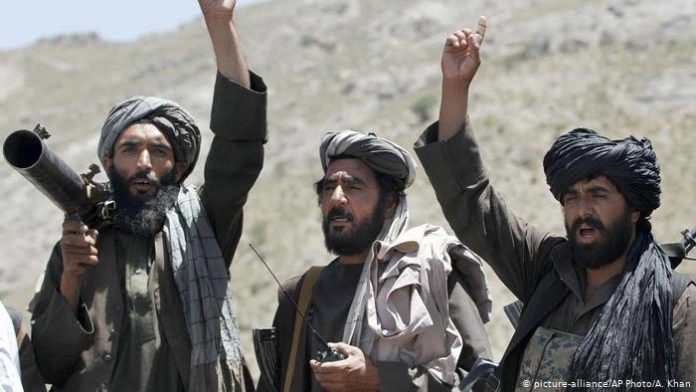

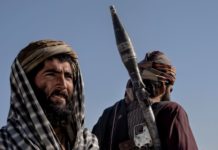
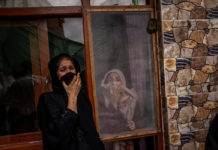
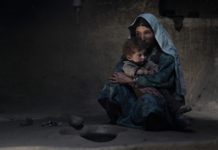
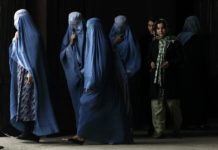
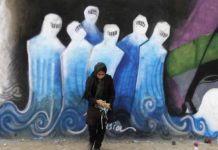
But the withdrawal comes amid escalating violence, with Afghan security forces on high alert for reprisal attacks. The Taliban have warned they are no longer bound by an agreement not to target international troops.
Comments are closed.